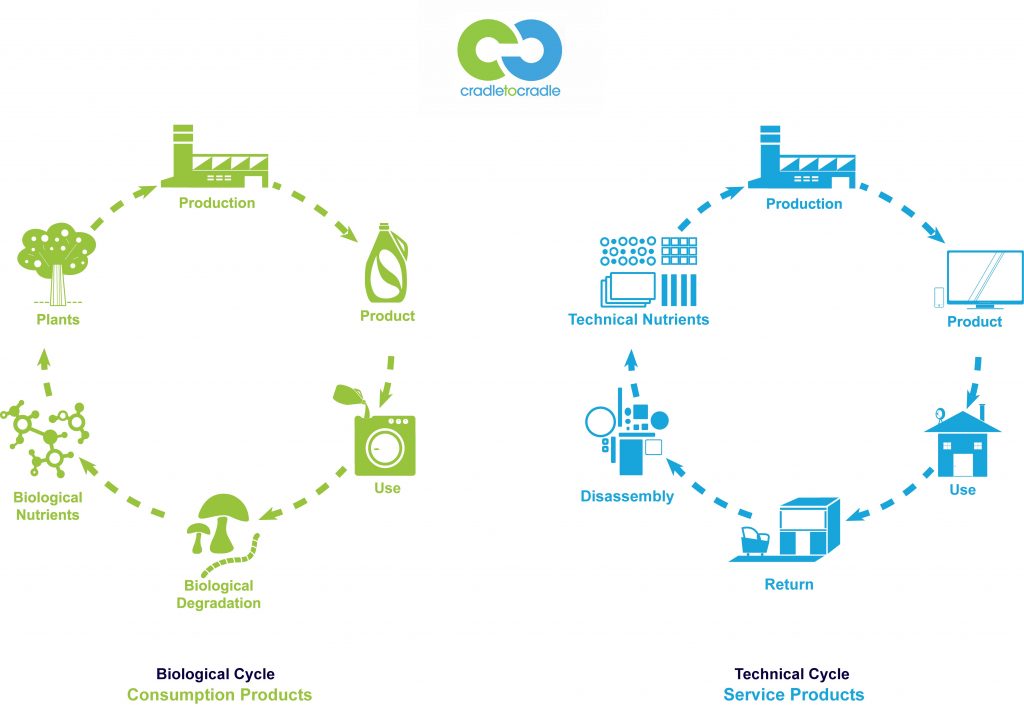Since 2005 the Cradle to Cradle (C2C) Certified™ product standard has been developed and adopted in many countries as the most stringent product certification fitting with the principles of the circular economy.
Accsys’ acetylation process and products fit perfectly in the bio-cycle of the C2C concept, with Accoya® being Cradle to Cradle Certified® Gold overall and with a Platinum rating for Material Health.
As part of that certification, our supply chain, production processes and procedures have been examined and scored on categories including: Material Health (Platinum), Material Reutilisation (Gold), Renewable Energy & Carbon Management (Gold), Water Stewardship (Gold) and Social Fairness (Gold).

Bio-cycle
Based on renewable and compostable materials from which new materials can grow (also known as the bio-based economy):
- Biodegradable – no waste problem
- (Rapidly) renewable & sustainable sources
- Low/negative CO2 footprint
Techno-cycle
Based on non-renewable, non-biodegradable materials, which must be recycled otherwise they run out and/or provide a waste problem.
- Not bio-degradable
- High energy demand if recycled
- Non-renewable (finite resources)
- High CO2 cost
Techno-cycle materials have often been used due to superior performance characteristics. With our products this is totally different: our renewably-sourced products can match or even surpass the performance of non renewable, high CO2 intensive tech-cycle materials such as PVC and aluminium.
Essentially, sustainable building materials produced in the biosphere (bio-cycle of the circular economy) have three huge ‘green’ benefits over techno-cycle materials:
- They are renewable (if managed well, potentially unlimited sources)
- They have a very low, possibly even negative carbon footprint
- If designed well (bio-cycle compliant additives, coatings & adhesives), they are biodegradable and/or compostable, returning nutrients back into the bio-cycle for new plants/trees.




